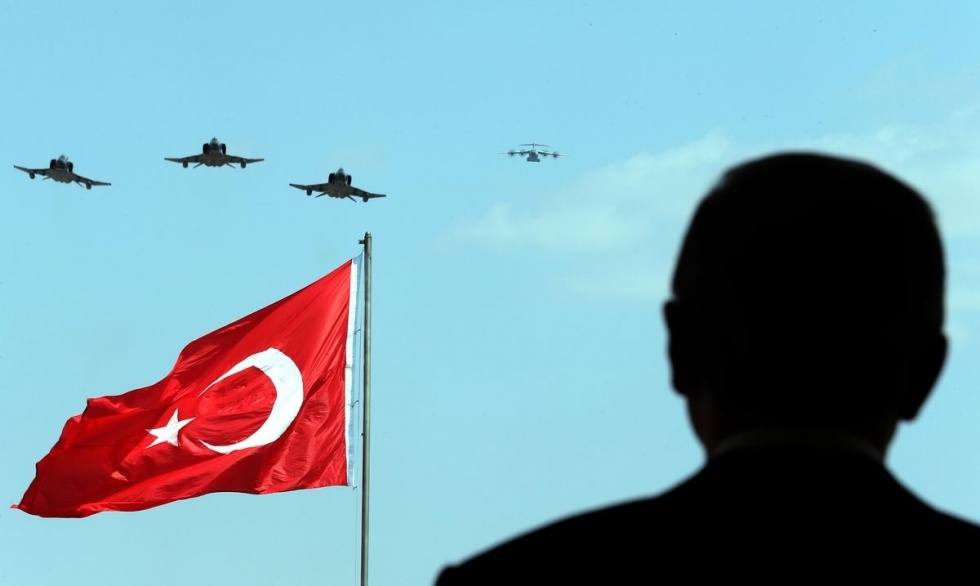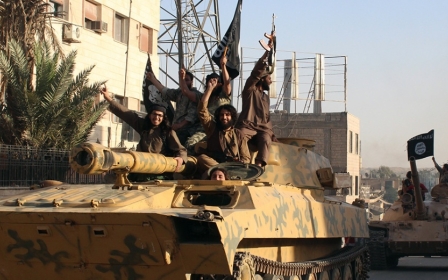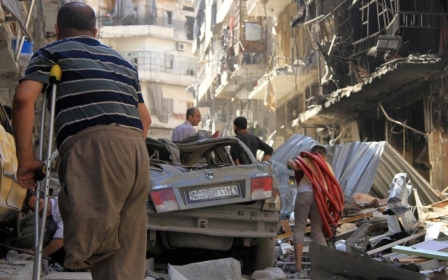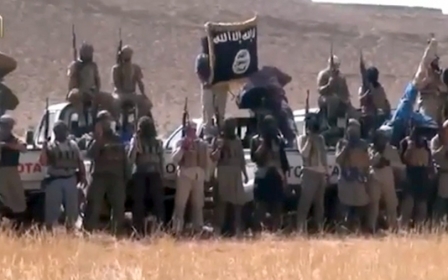Turkish president: Syria's Assad helped rise of IS

The actions of the government of Syria's Bashar al-Assad have given rise to militant groups such as the Islamic State, Turkey's new President Recep Tayyip Erdogan has said.
"The source [of IS attacks in Iraq] is Syria and al-Qaeda. Unfortunately, it is cruel Assad who is behind the increase of such militant groups, especially in Syria," Erdogan said at an interview aired on Al Jazeera Turk's online news channel on Friday evening.
In his first interview after being elected as Turkey's 12th President on Tuesday, Erdogan said that terrorist groups emerge in countries with no stable government, resulting in al-Qaeda giving birth to the Islamic State, formerly known as ISIL.
"It is our wish that the new Iraqi government eliminate the chaos which feeds such groups," Erdogan said.
Iraq's Prime Minister Nuri al-Maliki stepped aside on August 14 for Haider al-Abadi, who was appointed three days earlier by President Fouad Massoum as the prime minister-designate.
The United States, Turkey and Iran, as well as Iraqi Kurdish, Sunni, Shiite groups have welcomed the nomination of the former deputy parliamentary chairman, who must form a unity government within a month.
"We want Iraqi people to be as one. I pray that Iraq will stand up again in unity," Erdogan said, adding that Turkey is hopeful that a new national consensus government will be formed soon as a divided Iraq would be very dangerous, and conflicts in the country would never end.
"We support Iraq's territorial integrity. The more united a country is, the more powerful it gets."
A coalition of armed groups linked to the Islamic State took control of large parts of Iraq’s predominantly Sunni provinces in June.
The Iraqi army has been trying to reverse the gains the insurgents made in the west of the country, while the fight is in full force between the Islamic State and the peshmerga -- the military force of the Kurdish administration -- in northern Iraq, with help from both Western powers and Iran.
On Thursday, France's President Francois Hollande rejected any cooperation with Assad's forces against IS.
"A big alliance is necessary but let's be clear - Bashar al-Assad cannot be a partner in the fight against terrorism, he is the de facto ally of jihadists," Hollande said.
France and other backers of the Syrian uprising against Assad have accused the government in Damascus of effectively backing IS by failing to target it, while bombing its rival rebels.
New MEE newsletter: Jerusalem Dispatch
Sign up to get the latest insights and analysis on Israel-Palestine, alongside Turkey Unpacked and other MEE newsletters
Middle East Eye delivers independent and unrivalled coverage and analysis of the Middle East, North Africa and beyond. To learn more about republishing this content and the associated fees, please fill out this form. More about MEE can be found here.




